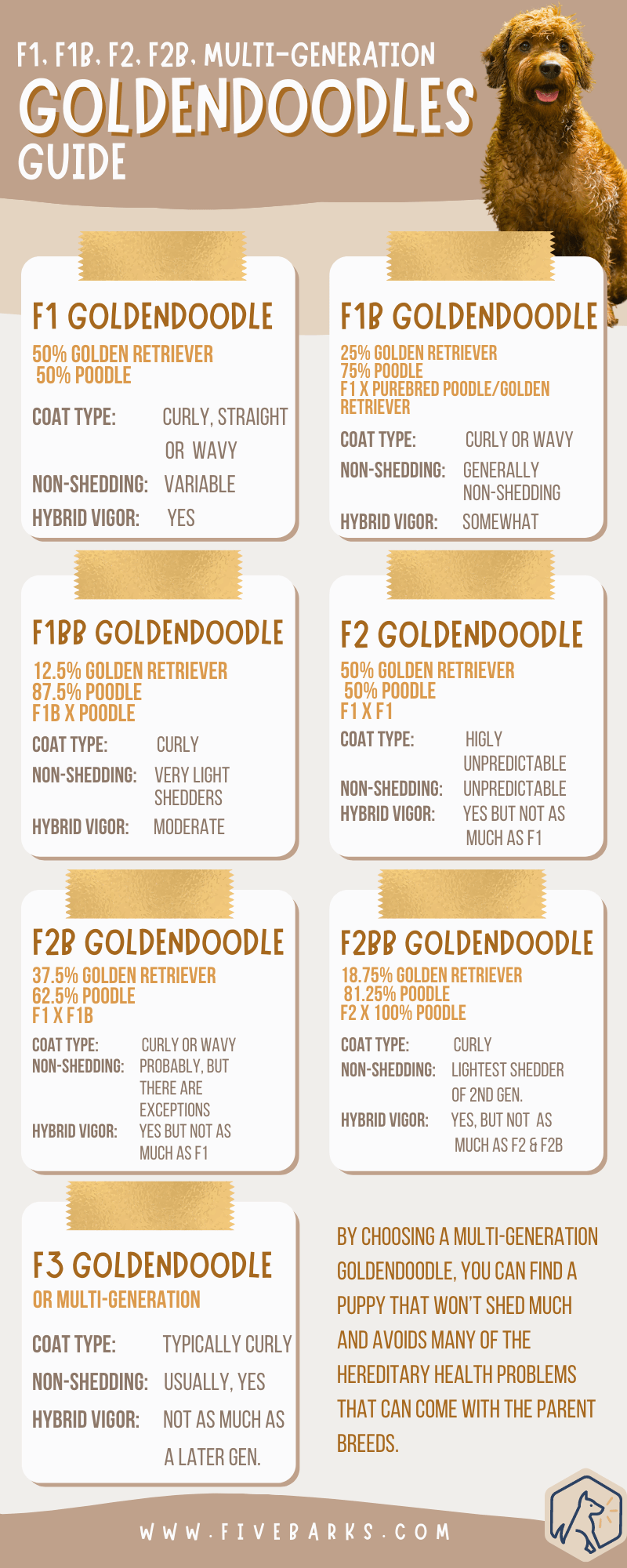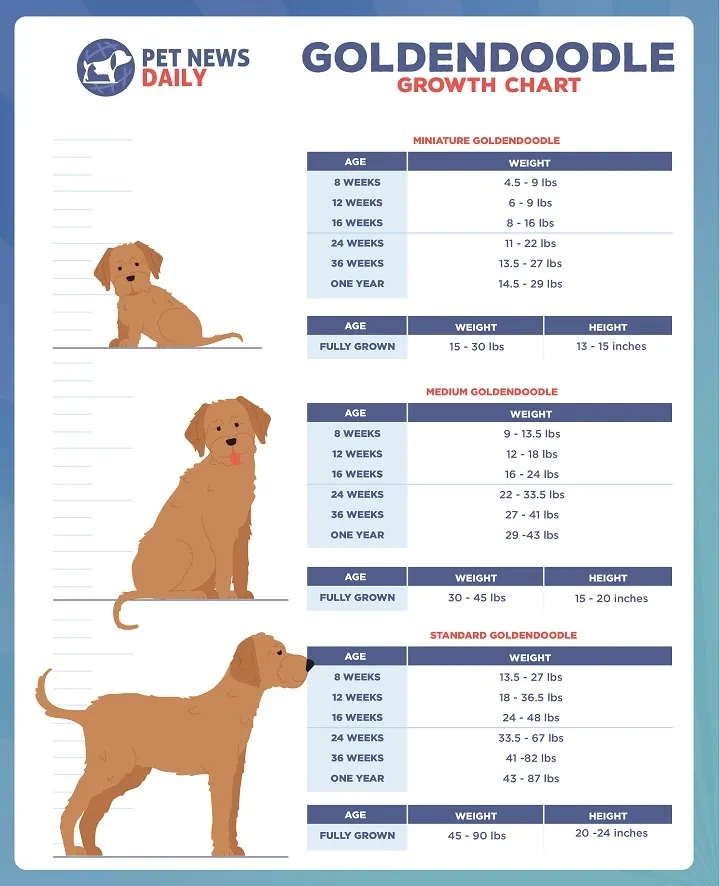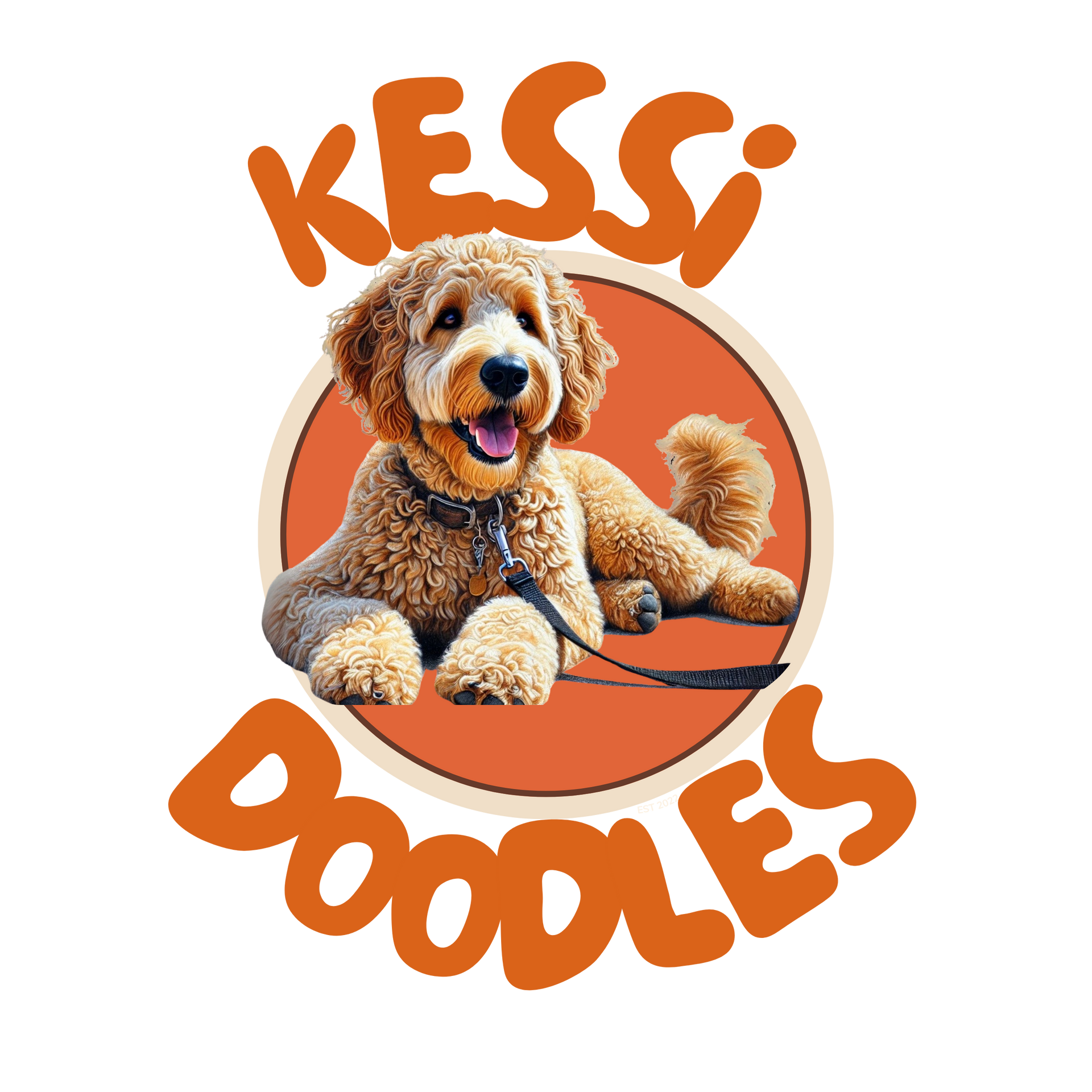About The Goldendoodle Breed
Just A Little Goldendoole Insight:
Potty Training Schedule for 3-6 month old puppies eating three meals a day & human working during the day:
Goldendoodles are an affectionate, highly social, and intelligent breed. They first appeared in the 1990s when breeders attempted to breed a larger alternative to small fashionable hypoallergenic dogs like the cockapoo. Goldendoodles have become one of the most recognizable dog breeds in the world. They are referred to as the "designer dog", a crossbreed between two purebreds the golden retriever and the poodle. They’re loyal and devoted to their loved ones. Goldendoodles are friendly towards children, other dogs and pets and can be great with strangers. Goldendoodles are social dogs, and happiest when paired with a loving family. Goldendoodles are likely to be mischievous and develop behavior problems if they spend a lot of time alone. Their brilliance, eagerness to please, and love of learning make them very easy to train. They've been known to do service or therapy dog work and to be great companions to children and adults with special needs.
HOW OFTEN SHOULD I GET MY DOODLES GROOMED?
GoldenDoodle’s are most popular not just for their intelligence but for their hypoallergenic and low to non-shedding coats. This means they require A LOT of coat maintenance! This includes frequent daily brushing and trips to the groomer. If you want to maintain that long wavy coat we recommend grooming at least every 6-8 weeks. For those that like the shorter cut we recommend grooming every 8-10 weeks. If you neglect regular brushing and trimming especially after rainy days your GoldenDoodle will end up with a tangled or matted coat. This takes up time and is an expense many new Goldendoodle owners do not take into consideration.
HOW SHOULD I POTTY TRAIN MY PUPPY?
We recommend above all else Kennel Training your new puppy! We have already started acclimating the puppies to being in a kennel and going potty outside! Dogs are natural den animals and feel much more comfortable in a smaller enclosed space. It is important when potty training your new puppy that they only have enough room in their kennel to stand up, turn around, and lay back down. They naturally do not want to go potty where they are sleeping so this will make the puppy think twice before having an accident in their kennel. As the puppy gets older and larger their kennel space can be opened up to a larger area for them. A puppy needs to be in their kennel three specific times a day, when you aren't at home, when you are at home but not paying specific attention to the puppy and when you are sleeping. A puppy can generally hold their potty for about 3 hours without thinking about it.
Potty Training Schedule
for 3-6 month old puppies eating three
meals a day & human working during the day:
Potty Training Schedule for 3-6 month old puppies eating three meals a day & human working during the day:
• 7:00 am - Wake up. Go straight outdoors with your pup for a walk.
• 7:10-7:30 pm - Free time in the same room as you.
• 7:30 am - Food and water. Practice sit commands before placing food on the floor.
• 8:00 am - Go outdoors with your pup for a walk.
• Crate confinement when you leave for the day. Leave safe toys and chewies [but no food or water] in the crate for pups entertainment.
• If you can during this gap tend to your pup on lunch break for a quick potty break or have someone tend to them once or twice in-between would be great.
• 6:00 pm - Come home and let Pup straight outside for a walk.
• 6:15-6:30 pm - Free time in the same room as you.
• 6:30 pm - Food and water. Practice sit commands before placing food on floor.
• 7:00 pm - Go outdoors with your pup for a walk.
• 7:15 pm - Free time in the same room as you.
• 9:00 pm - Food and water
• 9:30 pm - Go outdoors with your pup for a walk.
• 9:40 pm - Free time in the same room as you.
• 11:00 pm - Go out with your pup for one last night cap with your pup. Then crate confinement overnight.
Generation Chart

Size Chart


